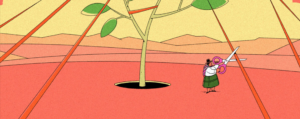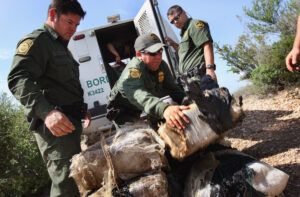What is UNGASS 2016, and why does it matter?
In April 2016, the United Nations will convene a General Assembly Special Session (UNGASS) specifically related to drugs. While the agenda has not yet been set, this UNGASS will be the highest-level debate on the international drug control system in recent history. As the highest policy-making and representative body in the United Nations, the General Assembly will serve to guide global drug policy cooperation and shape debate for the coming years.
What is WOLA working to accomplish at the 2016 UNGASS?
WOLA has been working together with our partners to ensure the discussions serve to advance human rights and public health, and reflect the growing global debate on the failures of current policies and the need to explore alternative approaches that are more effective and more humane.
The International Drug Policy Consortium (IDPC), a worlwide coalition of reform-minded drug policy organizations of which WOLA is a member, has outlined five key policy “asks” for the UNGASS. These reflect the broad and deep-seated problems with the prohibitionist model, and encourage member states to recognize the failures of past policies and adopt new evidence-based approaches that prioritize human rights and public health.
1. Ensure an open and inclusive debate
2. Re-set the objectives of drug policies
3. Support policy experimentation and
innovation
4. End the criminalization of the most affected
populations
5. Commit to the harm reduction approach
To read more about the preparations for the 2016 UNGASS and our policy asks, click here.
Other commentary, analysis, and resources on the lead-up to the 2016 UNGASS
Global coalition of NGOs form “Stop the Harm” drug policy reform movement in advance of UNGASS
Stop the Harm seeks to rectify the catastrophic failures of the current global drug policy regime through campaigning for a new course firmly grounded in health, compassion, and human rights, and will highlight relevant events, actions, and campaigns advancing reforms.
Uruguay presents its document on the Impact of the World Drug Problem in the exercise of Human Rights
This document represents the Uruguayan contribution to the implementation of the resolution “Contribution of the Human Rights Council to the Special Session of the UN Assembly the World Drug Problem 2016.
IDPC recommendations for the “ZERO DRAFT” of the UNGASS outcome document
In the lead up to the negotiations of the UNGASS outcome document, IDPC has drafted this advocacy note with recommendations on the structure and contents of the “zero draft”.
IDPC Drug Policy Advocacy Training Toolkit, Module 5: The 2016 UNGASS
This new module intends to guide participants through the processes of the 2016 UNGASS on drugs, to place the Special Session in the broader context of global drug policy, and to explore the various ways in which civil society can impact upon the UNGASS and its preparatory process. This is part of our Drug policy advocacy training toolkit, available here.
The 2015 Commission on Narcotic Drugs and its special segment on preparations for the UNGASS on the world drug problem: Report of proceedings
This IDPC report provides an overview and analysis of the key debates and discussions that took place during this year’s CND, in particular in light of the approaching UNGASS.
NGOs brief Member States on Health and Harm Reduction in Drug Policy
In advance of a high-level meeting on UNGASS, WOLA joined with 12 NGOs in sending a letter calling for policies that promote public health and harm reduction.
UN Human Rights bodies to actively participate in the UNGASS
In response to widespread calls from human rights groups and reform-minded nations to include a human rights focus in the drug policy debate, the UN Human Rights Council (UNHRC) adopted a resolution to contribute to the UNGASS in 2016. The UNHRC has requested the creation of a study on the impact of the world drug problem on human rights and will host a panel discussion on the topic.
To read more about WOLA’s advocacy at the UNHRC with partner organizations, please click here. For the full text of the UNHRC resolution, click here.
Giving voice to drug policy reform at the Commission on Narcotic Drugs (CND)
Countering what has long been a closed off process, WOLA’s Coletta Youngers joined civil society colleagues in Europe to present alternatives to failed drug policies at the Commission on Narcotic Drugs (CND) in Vienna. The CND is the primary location for the debate and planning leading up to the UNGASS, and encouraging a diversity of voices helps to ensure the UNGASS recognizes new approaches to drug policy.
To see how WOLA and our colleagues stimulated debate on alternative development, click here. To read the presentation on women and incarceration, click here.
Contributing to UN consensus on drug policy reform
The E-Book of Authorities, a joint creation of the International Drug Policy Consortium, the Transnational Institute, and Harm Reduction International, catalogues agreed UN statements and language on a selection of topics, to show the extent of existing international support for evidence-based drug policies. The objective of the E-Book of Authorities is to help inform international drug policy discussions, debates and negotiations.
To view the new tool, please click here.
Blogging the road to UNGASS
The Commission on Narcotic Drugs (CND) is the central policy-making body of the UN drug control system. Despite this key mandate, it chooses to work in secrecy – meetings are not webcast and reports of the meeting are very limited. The CND Blog is a project of the International Drug Policy Consortium (IDPC, to which WOLA is a member) with the International Association for Hospice & Palliative Care, Release and the Canadian Students for Sensible Drug Policies, and provides regular updates on the important debates that will define the 2016 UNGASS
Click here to follow the road to UNGASS.
Civil society advocacy at the United Nations in New York
WOLA is a member of the New York NGO Committee on Drugs (NYNGOC), which provides a platform for discussion of drugs and drug-related subjects and interfaces with the United Nations (UN) to collaborate on solutions to global drug problems.
To learn more about the NYNGOC’s work, please click here.
Informal Drug Policy Dialogues
Since 2007, WOLA and the Transnational Institute (TNI) have conducted a series of Informal Drug Policy Dialogues between civil society and government officials to promote the open-minded exchange of information and strategies on a range of policy issues. These initiatives have allowed advocates and practitioners to share their views on current dilemmas in international drug policy and discuss strategies for promoting alternative drug policies that promote human rights and protect public health.
To read the rapporteurs’ reports from these dialogues, please click here.
Modernizing the international drug treaty system
In a report with the Brookings Institution, WOLA’s John Walsh analyzed tensions between international law and recent initiatives in the United States and Uruguay to legalize the recreational consumption of marijuana. The authors argue that the creation of legal regulated marijuana markets offers an opportunity to enact narrowly crafted treaty reforms to modernize the treaties that govern international drug law.




